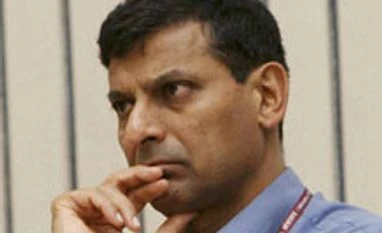Rajan has already warned he does not have a "magic wand" to deal with India's economic crisis, but dubbed "The Guv" by a gushing Indian media, hopes are high he can find a formula to stabilise the rupee, calm inflationary pressure and at the same time spark a revival in economic growth.
But first he will have to deal with the outcome of a pivotal meeting on Tuesday and Wednesday of the US Federal Reserve. The Fed is likely to announce measures to rein in its massive economic stimulus, an expected policy tapering that has already sparked an emerging market selloff contributing to the rupee's fall to a record low.
In a reminder of the economic pressures facing the RBI, wholesale inflation data on Monday is expected to show price pressures at a six-month high.
It is the last major data point before the former IMF chief economist, who famously predicted the global financial crisis, holds his first policy meeting on Friday.
"These data points will not mean much for the upcoming RBI monetary policy as their hands are tied at this stage and a lot will depend on what comes out of the (Fed) meeting," said Rupa Rege Nitsure, chief economist at Bank of Baroda.
The Fed is expected to reduce its $85 billion a month bond-buying programme, but financial markets are uncertain about the extent of the reduction.
Concerns that India, along with other emerging markets, will see reduced capital inflows once the Fed trims its stimulus programme has been a major factor in the rupee's slump.
More From This Section
Many analysts say the economy is more vulnerable than most because of a record current account deficit and a fiscal deficit, both bloated by the increasing cost of oil imports as global crude prices are rising.
Imported inflation
New Delhi is contemplating a near 10% hike in diesel prices soon to ease its oil subsidy burden, government officials have told Reuters.
Disruption in supplies of vegetables and onions due to summer rains has exacerbated price pressures.
"It looks like over the next few months WPI inflation might be headed up towards 9-10%," said Daniel Martin, Asia Economist at Capital Economics in Singapore.
That makes the central bank's job more difficult because measures to stifle inflation, such as raising interest rates, could at the same time undermine economic growth, already strained and running at a decade low.
That partly explains why the central bank has not raised its policy rate to support the rupee, unlike Brazil and Indonesia. Instead, it forced up short-term rates.
Rajan, who has received the sort of media attention usually reserved for Bollywood stars, stunned financial markets on his first day in the job on September 4 by announcing a blaze of measures to support the currency and open up markets that triggered a rebound in the rupee and stock markets.
The rupee has recovered more than 6% against the dollar since Sept 3. Indian stocks have gained about 8% since then.
)